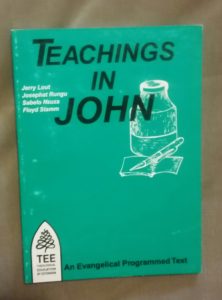“Bwana, Kuja! Ona nyoka kubwa sana!”
The African voices clamored – yelling attention to the white men of Bukuria station. “Sirs, Come see! Very big snake!”
Art Dodzweit leapt from his chair. Reaching for his rifle and a fist full of shells he shouted. “Bud, come! Seems a cobra or python has paid us a visit.”
In the mid 1940s, friends Bud Sickler and Arthur Dodzweit had boarded ships to Kenya from the U.S. The agency had commissioned them and their new brides – identical twins, Fay and May – to preach, serve where they might, and start churches. Early on an administrator had greeted them.
“That hill over there, just in the distance. Its the place we’ve approved land for your mission. Shall we have a look?” The Englishman of Britain’s Crown Colony showed the Yankee newcomers the plot of land. Then left them to the work.
Kuria country was covered with trees, underbrush, and occasional patches of grazing land, rugged and wild. Narrow creeks and rivers crisscrossed hilly terrain. These waterways flooded their banks most rainy seasons. Crop planting hardly got a mention among the traditional nomad cattle-tenders – the Wakuria.
Among predator-creatures native to the area were large, slithering pythons, camouflaged in the region’s undergrowth.
They moved about mostly at night, stalking small and, at times, larger game – their big, round eyes and nimble forked tongue, keenly detecting prey. On the night of the snake alert the sky was black. The men tramped the direction shown to them.
Art stopped. Movement in the tall grass by his feet sent shivers along his back. The snake lay nearby, no question. A young Kenyan bearing a flashlight, lowered it. They spotted the signs. Blotches of tan interrupted by cream-tinted borders and black outer lines glided forward. Art held the gun stock in a tight grip. A python for sure.
“Bud! Bud!” Art’s nervous voice cut into the night. “I’m gonna shoot, Bud.” He squeezed the trigger. The kick of the rifle threw him back a step.
That moment the python’s fore-end, several yards out to the left, instantly rose upward from the blast’s impact, the high caliber bullet tearing into its midsection.
Bud stood meters away, silent in the dark. A nearby African, gripping a flashlight, caught the image of the huge snake’s head, suddenly meeting eyeball-to-eyeball with Bud Sickler – perhaps two inches before his nose.
Bud’s throat took in a sudden suck of air. His backward fall came instant and sure. The tall, red-haired young man lay flat in the grass, out cold from the shock of the encounter.
We never learned how the two friends, when they finally retired for the night, managed to sleep.
What we would learn now that we had landed at Bukuria. The Python family hadn’t gone away. They were still in the neighborhood.
© 2017 Jerry Lout



